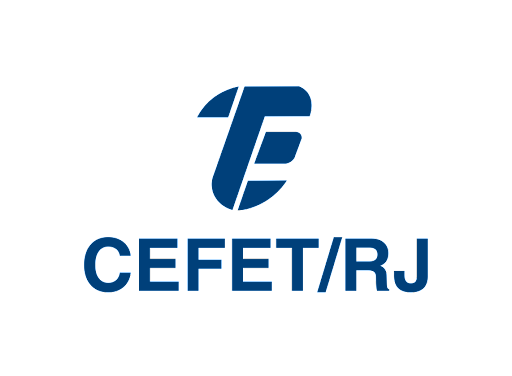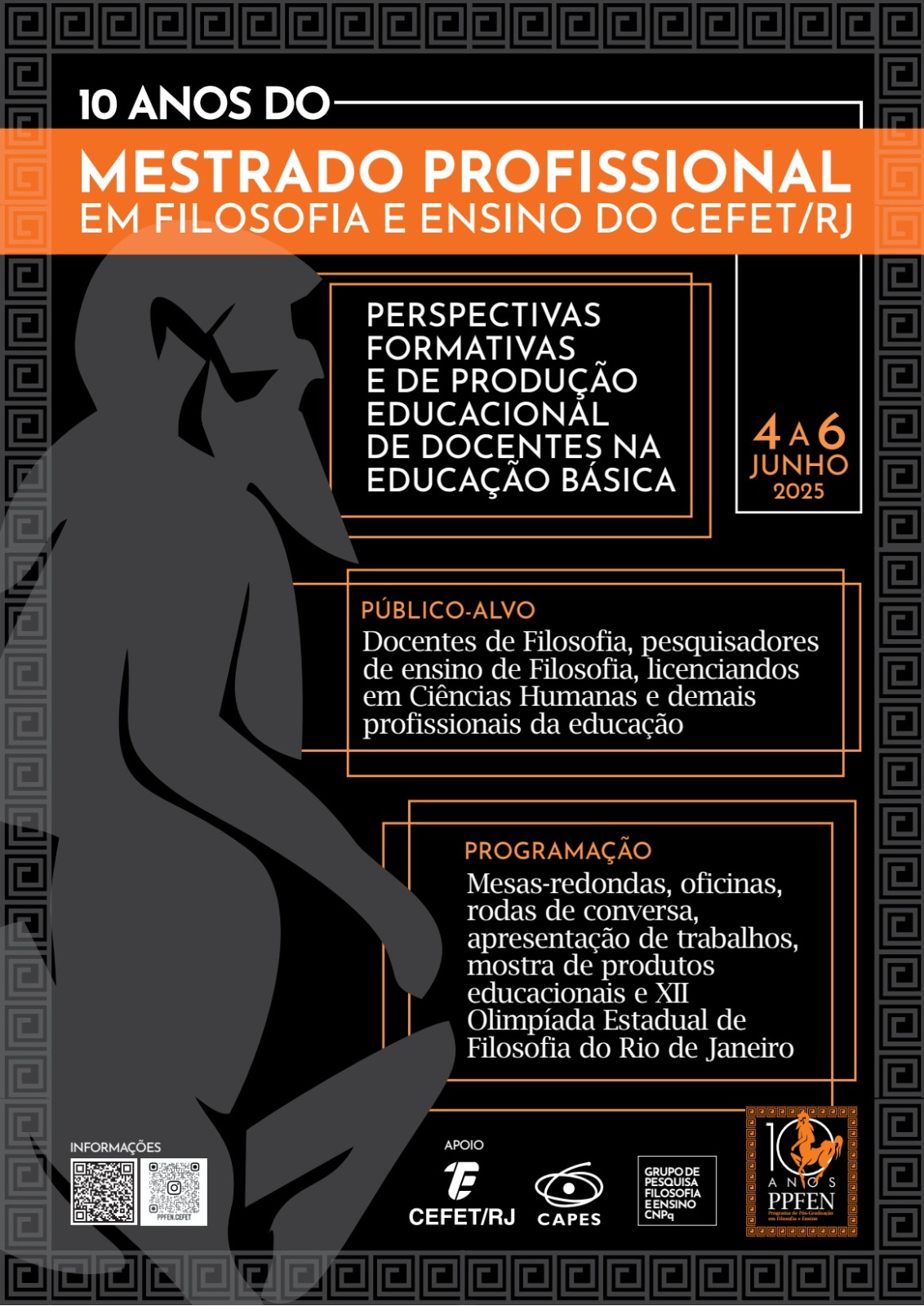The Philosophical Rhetoric in the Dialogue Phaedrus
Psykhagogía as education model
Keywords:
Education, Speech, Phaedrus, Plato, Psykhagogy, RhetoricAbstract
The article delves into the intricate relationship between rhetoric, dialectic, and learning in Plato's dialogue Phaedrus, emphasizing the technique of psykhagogía, meaning "soul-guiding." Plato argues that a true orator must adapt their speech to the type of soul of each interlocutor, using a methodical and reflective approach, combining dialectical and rhetorical elements to foster internal transformation in the soul. Psykhagogía is described as an educational process, where guiding the soul is closely tied to the use of appropriate speeches and a deep understanding of the soul. The article highlights the importance of the internal movement of the soul in attaining knowledge and suggests that Platonic rhetoric is not merely persuasive but also educational, leading interlocutors to truth through a dialectical method.Downloads
References
PLATÃO. Fedro. Tradução do grego, apresentação e notas de Maria Cecília Gomes dos Reis; introdução de James H. Nichols Jr. São Paulo: Penguin Classics Companhia das Letras, 2016.
_________. Fedro. Tradução e organização de Rogério G. de Campos. São Paulo: Hedra, 2018.
_________. Platonis Opera, ed. John Burnet. Oxford University Press. 1903. (Disponível em https://www.perseus.tufts.edu/)
Referência secundária
AESCHYLUS. Aeschylus, with an English translation by Herbert Weir Smyth, Ph. D. in two volumes. 1.Persians. Cambridge. Cambridge, Mass., Harvard University Press; London, William Heinemann, Ltd. 1926
ARISTOPHANES. Aristophanes Comoediae, ed. F.W. Hall and W.M. Geldart, vol. 2. F.W. Hall and W.M. Geldart. Oxford. Clarendon Press, Oxford. 1907.
ASMIS, E. “Psychagogia in Plato’s Phaedrus”. Illinois Classical Estudies. Estados Unidos, v. 11, n. ½, 1986, p. 53-72.
BURNEAT, M. F. “Firt word: a valdictory lectures”. Proceeding of the Cambridge philological Society. Vol. 43. pp,1-20, 1997.
EURIPIDES. Euripides, with an English translation by David Kovacs. Cambridge. Harvard University Press. forthcoming.
FERRARI, F. Listening to the cicadasa: Study of Plato's Phaedrus.Cambridge: University of Cambridge, 1987.
ISOCRATES. Isocrates, with an English Translation in three volumes, by George Norlin, Ph.D., LL.D. Cambridge, MA, Harvard University Press; London, William Heinemann Ltd. 1980.
JÁUREGUI. M. H. “The Meanings of σώιζειν in Alcestis’ Final scene”. TC 2016; 8(2): 205-225.
JOUAN, F. 1981. "L'cvocation des morts dans la tragedie grccquc." RHR 198: 403-21.
KERÉNYI, K. Arquétipos da religião grega. Tradução de Milton Camargo Motta. Editora Vozes, Petrópolis: 2015.
MOSS, J. “Soul-leading: The unity of the phaedrus, again”. In Brad Inwood (ed.), Oxford Studies in Ancient Philosophy. Oxford University Press. pp. 43--1 (2012).
MUNIS. F. Dividing Plato's Kinds”. Phronesis October 2018, vol 63. 4.
NUSSBAUUM, M. The fragility of goodness: luck and ethics in greek tragedy and philosophy. Cambridge University Press, Ano: 2001.
ODGEN: D. Greek and Roman Necromancy. Princeton university y press, 2001.
___________. Magic, Witchcraft, and Ghosts in the Greek and Roman Worlds: A Source Book. Oxford University Press, 2002
PEIXOTO, M.C. “La psicagogia del Fedro”. In Casertano 2011: 173–206.
PLATÃO. Fedro. Tradução do grego, apresentação e notas de Maria Cecília Gomes dos Reis; introdução de James H. Nichols Jr. São Paulo: Penguin Classics Companhia das Letras, 2016.
PLATO. Platonis Opera, ed. John Burnet. Oxford University Press. 1903.
PROCLO. Plato’s Parmenides. Morrow G, Dellon J. Princeton University, 1980.
Downloads
Published
How to Cite
Issue
Section
License
Copyright (c) 2025 Estudos de Filosofia e Ensino

This work is licensed under a Creative Commons Attribution-NonCommercial 4.0 International License.
Autores que publicam nesta revista concordam com os seguintes termos:
- Autores mantém os direitos autorais e concedem à revista o direito de primeira publicação, sendo o trabalho simultaneamente licenciado sob a Creative Commons Attribution License o que permite o compartilhamento do trabalho com reconhecimento da autoria do trabalho e publicação inicial nesta revista.
- A contribuição é original e inédita, e não está sendo avaliada para publicação por outra revista.
- Autores cedem os direitos de autor do trabalho que ora apresentam à apreciação do Conselho Editorial da Revista Cenário, que poderá veicular o artigo na Revista Cenário e em bases de dados públicas e privadas, no Brasil e no exterior.
- Autores declaram que sãoo integralmente responsáveis pela totalidade do conteúdo da contribuição que ora submetem ao Conselho Editorial da Revista Cenário.
- Autores declaram que não há conflito de interesse que possa interferir na imparcialidade dos trabalhos científico apresentados ao Conselho Editorial da Revista Cenário.
- Autores tem autorização para assumir contratos adicionais separadamente, para distribuição não-exclusiva da versão do trabalho publicada nesta revista (ex.: publicar em repositório institucional ou como capítulo de livro), com reconhecimento de autoria e publicação inicial nesta revista.
- Autores tem permissãoe são estimulados a publicar e distribuir seu trabalho online (ex.: em repositórios institucionais ou na sua página pessoal) a qualquer ponto antes ou durante o processo editorial, já que isso pode gerar alteraçãoes produtivas, bem como aumentar o impacto e a citação do trabalho publicado (Veja O Efeito do Acesso Livre).






